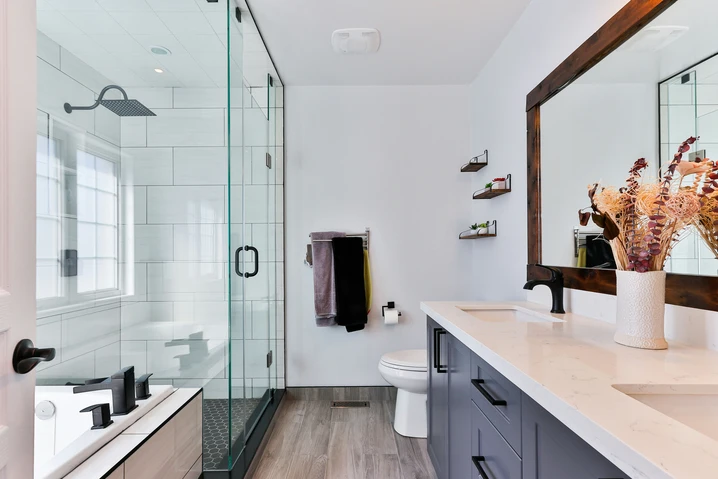Overview
Gnats are a nuisance for renters and landlords alike, particularly in damp bathroom environments. Small to medium-sized landlords should understand how to identify, eliminate, and prevent gnat infestations to maintain tenant satisfaction and protect property condition. This guide covers all you need to know for a gnat-free bathroom.
Understanding Gnats
“Gnats” encompass several non-biting fly species—drain flies, fungus gnats, and fruit flies—all drawn to moist, organic-rich habitats. In bathrooms, drain flies breed in the biofilm inside pipes, fungus gnats emerge from overwatered plants, and fruit flies may be attracted by organic debris. Identifying the species guides the most effective treatment.
Identifying Infestations
- Adult flies hovering around sink or shower drains.
- Small, moth-like flies on walls near water sources.
- Visible larvae in drain traps or plant soil.
- Sticky traps catching multiple gnats overnight.
Test by waving your hand over drains to see if gnats emerge or by applying clear tape over the drain and inspecting it in the morning.
Eliminating Breeding Grounds
- Clean Drains: Pour hot water with dish soap weekly; for stubborn buildup, use a microbial drain cleaner or pipe brush.
- Fix Leaks: Repair dripping faucets and pipes to eliminate standing water.
- Plant Care: Allow plant soil to dry between waterings and replace the top layer if larvae appear.
- Dry Surfaces: Empty and wipe down soap dishes, shower trays, and sink basins after each use.
Traps & Solutions
Vinegar Trap
Combine apple cider vinegar (or red wine) with a drop of dish soap in a bowl. Cover with plastic wrap, poke small holes, and place near the drain. Gnats enter for the scent and drown.
Sticky Yellow Traps
Place bright yellow adhesive strips by sinks or plant pots. Gnats are drawn visually and become stuck, reducing the adult population quickly.
Chemical Treatments
- Enzymatic Drain Cleaners: Break down organic buildup safely without harsh chemicals.
- Indoor-Safe Insecticides: Choose sprays specifically labeled for drain flies or fungus gnats and follow all safety instructions.
Use chemicals sparingly—prioritize eco-friendly options and proper ventilation.
Preventive Measures
- Routine Maintenance: Schedule weekly drain cleanings and leak inspections.
- Manage Humidity: Run exhaust fans or dehumidifiers to keep humidity below 50%.
- Seal Gaps: Ensure window and door screens are intact and seal around plumbing fixtures.
- Tenant Guidance: Provide simple cleaning and reporting instructions to tenants.
Frequently Asked Questions
Final Thoughts
Effective gnat management in bathrooms combines sanitation, targeted trapping, and preventive maintenance. By implementing these strategies, landlords can keep rental properties pest-free and tenants satisfied.
Try our free property valuation tool to gain real-time insights into your property's worth and optimize your investment strategy.

